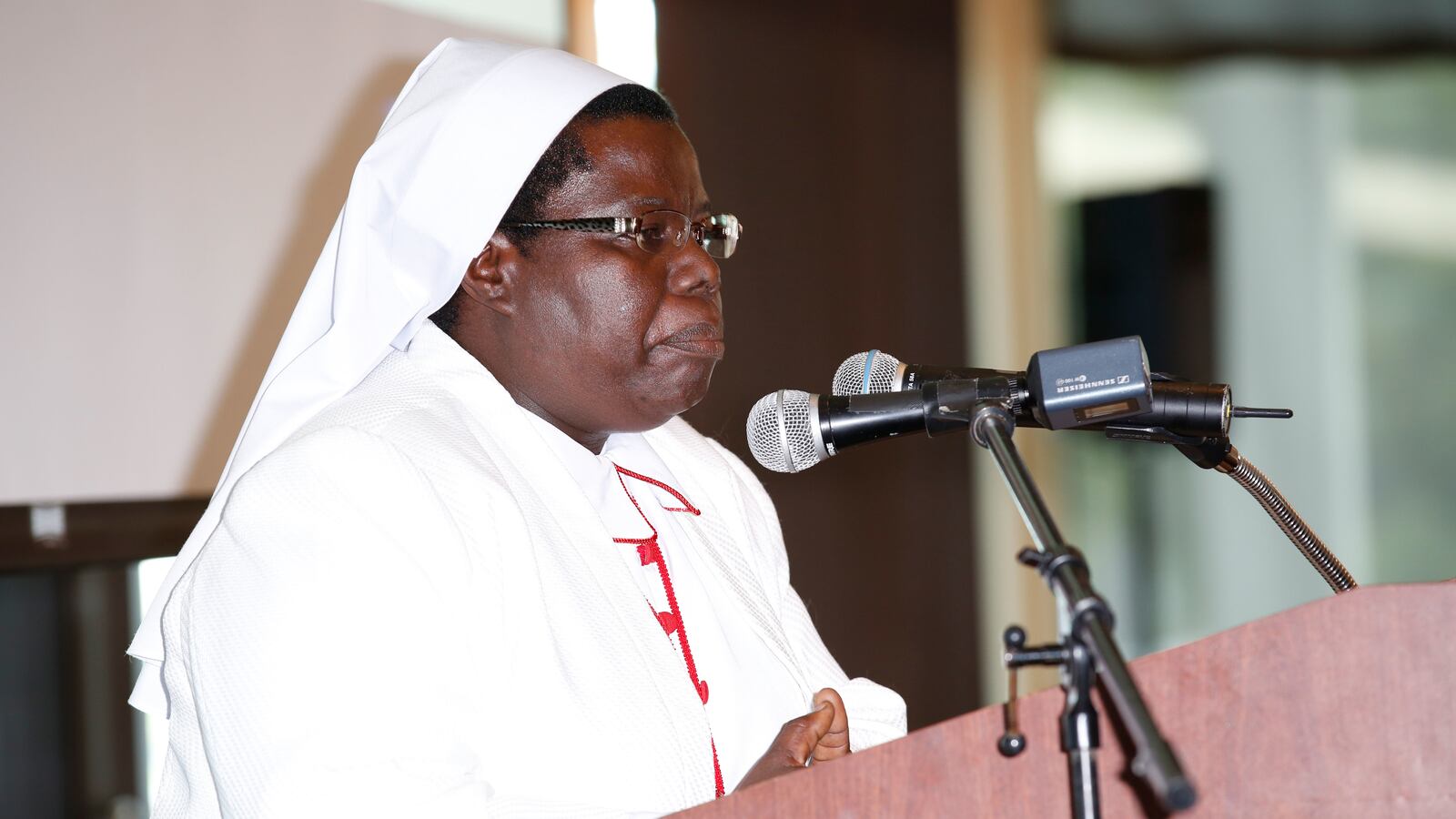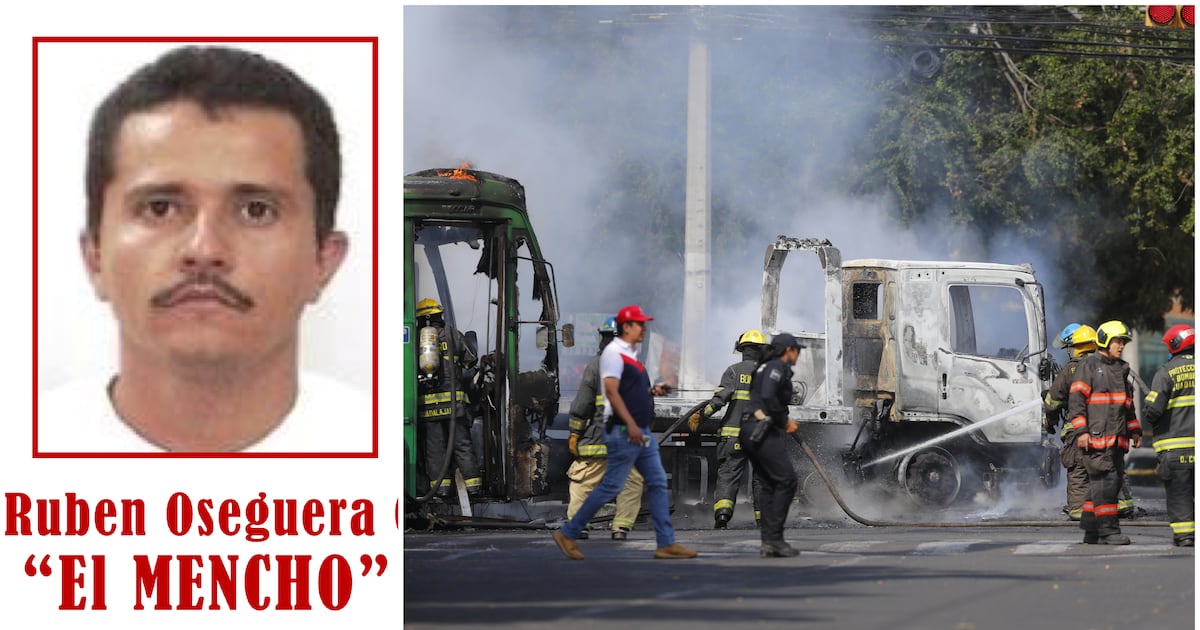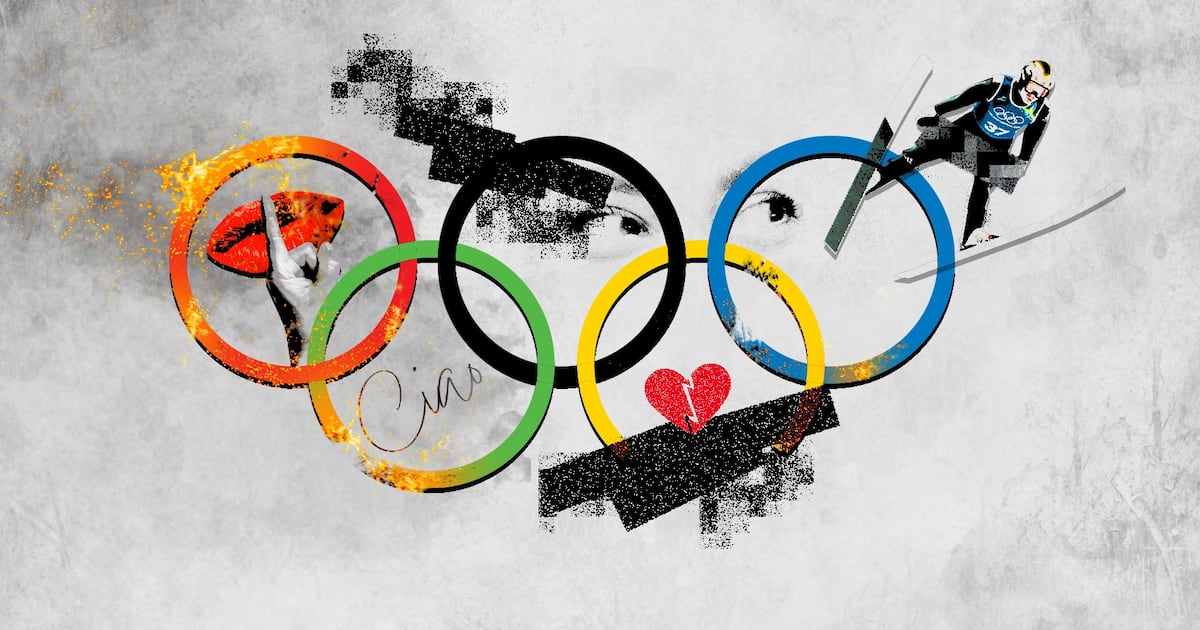Sister Rosemary Nyirumbe may be a nun, but the topic of gender inequality in Africa and first world indifference brings out her inner Muhammad Ali. This spring, the Ugandan humanitarian got feisty with Stephen Colbert in a guest appearance on his show: “If you cannot be sad because it is happening in Africa, which is part of humanity, I will feel like jabbing you,” she said, throwing a mock punch toward the host (and, in a later video, challenging him to meet her in Uganda to face off in the boxing ring.)
Nyirumbe has been on the front lines of the struggle for girls’ and women’s lives for many years. The director of the St. Monica Girls’ Tailoring Centre in Gulu, Uganda, since 2001, she oversees the rehabilitation of girls and women who were abducted into the fearsome Lord’s Resistance Army, led by notorious warlord Joseph Kony, who waged war in her country for decades.
She was named one of Time magazine’s 100 Most Influential People this year, and was the subject of a documentary, “Sewing Hope,” about her work and her mission to raise the status of girls and women on a global scale.
She’ll appear at Women in the World Texas in San Antonio on Oct. 22, along with one of her students, Florence Modo Arukude, to talk about gender equality in Africa and elsewhere and the importance of education in combatting it.
This year, she has been a leading voice in the call for the return of the young girls abducted from their Nigerian school by the terrorist group Boko Haram. It was this subject that riled her up on Colbert, and she continues to beat the drum, trying to recapture the attention of a fickle, short-attention-spanned media.
“It is very important to continue putting out the cry that we need these girls to come back! The media is a very powerful tool for raising awareness in society. We have to keep talking. We have to keep using the [“Bring back our girls”] hashtag,” she says, pointing out that the very reason the girls, aged 12 to 15, were abducted in the first place is the most important issue facing gender inequality today: their pursuit of education.
“Haram means something forbidden or sinful,” she says. “Boko means book. Why should education be forbidden for girls but not for boys?”
A native of Uganda, she joined the church in 1976, becoming a nun at the Catholic order of the Sacred Heart of Jesus. Throughout her life, she says, she has been well acquainted with the everyday injustices of gender inequality. “This attitude depends on different places,” she says. “Maybe in developed countries, gender stereotypes will be less – but in Africa, they are everywhere. Of course, the magnitude depends on the place. Some matriarchal societies will give more power to women. In other countries, women are really second class citizens.”
In her work with rescued women at her school, she is confronted with some of the deepest damage human beings are capable of inflicting: abuse, rape, torture, forced murder of family members.
The way back for these women, she says, is to construct an identity that counteracts the brainwashing: “They are made to think they will never have another chance for getting education, to really find a decent life.”
Her process, she says, is twofold: getting the women to talk about their experiences, and then re-building their psyches with dignity and self-sufficiency.
“They are not able to open up easily,” she says, when they first come to her. “They need to find someone they can trust; someone who will understand; someone who can be by their side. I make sure they speak to trained counselors. I say, ‘You need to speak to them — these people want to know what you went through.’” Many of the women have given birth to the children of their captors; these children also live at Saint Monica’s.
At her center and, now, two others — one in Uganda and one in South Sudan — women learn to craft the center’s now internationally-known soda-tab bags, proceeds of which go mostly to the workers.
Gradually, she has been opening up the center to boys as well, she says: “We have young boys who come during holidays to make purses or fill plastic bottles with dirt which we use for building houses. In this way they are able to get money to buy books and scholastic materials as well.”
Despite having worked with thousands of women rescued from abysmal, abusive conditions, Nyirumbe remains a gentle, cheerful presence with an electric smile. She’s optimistic about chipping away at what she calls the global assault on women.
“It is little by little, and step by step,” she says. “It is a long process, finding out the root cause of this problem — which is also punishing to men. We need to live in peace, men and women.”






